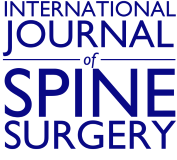Abstract
Background Spinal injuries, whether mechanical or neurological, frequently require urgent intervention. Superior outcomes are associated with earlier intervention, which often requires operating overnight and on weekends. However, operating after hours has been associated with increased risks of complications in selected studies. The authors sought to determine whether there are differences in outcomes for “after hours” surgery compared with “during hours” surgery for spinal emergencies.
Methods This is a single-center retrospective cohort study of spine surgery patients who underwent urgent surgery within 6 hours, from January 2015 through December 2019. Surgery was considered during hours if it started between 8 am and 5 pm Monday through Friday. After hours was defined as from 5 pm through 8 am on a weekday or Saturday or Sunday. We assessed 30-day outcome measures for differences between operations performed during hours or after hours.
Results There were 241 spine procedures performed (49 during hours and 192 after hours). There was no significant difference between the length of operation (145.3 vs 129.8 minutes, P = 0.29), estimated blood loss (303.9 vs 274.4 mL, P = 0.61), improvement in American Spinal Injury Association scale (0.26 vs 0.24 grade, P = 0.85), 30-day return to the operating room (OR; 14.3% vs 6.8%, P = 0.09), 30-day readmission (2.0% vs 6.3% P = 0.24), intensive care unit length of stay (4.6 vs 6.3 days, P = 0.27), hospital length of stay (13.5 days vs 14.2 days, P = 0.72), or 30-day mortality (4.1% vs 7.3%, P = 0.42) for cases performed during hours compared with those after hours, respectively. On multivariate analysis, prior malignancy (P = 0.008) and blue immediate status (P = 0.004) were predictors of 30-day mortality. However, “after hours” surgery was not a predictor of 30-day return to the OR, readmission, or mortality in either univariate or multivariate analysis.
Conclusions Spine surgery must often be performed after hours. However, the time of day does not significantly impact the 30-day outcomes for emergent spine surgery.
Level of Evidence 3.
Footnotes
Funding The authors received no financial support for the research, authorship, and/or publication of this article.
Declaration of Conflicting Interests The authors report no conflicts of interest in this work.
Ethics Statement Institutional Review Board approval was obtained for this study.
- This manuscript is generously published free of charge by ISASS, the International Society for the Advancement of Spine Surgery. Copyright © 2023 ISASS. To see more or order reprints or permissions, see http://ijssurgery.com.






